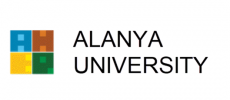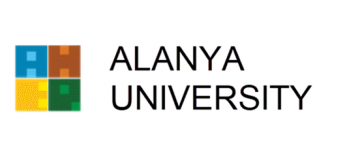COURSE CONTENTS (New Curriculum to be Implemented as of the 2025-2026 Fall Semester)
FIRST YEAR, FIRST SEMESTER (COURSE TERM)
GMSE 521 – Research Methods and Scientific Ethics (Compulsory) - Course Credit: 3 ECTS: 10
This course covers the introduction of scientific concepts, the design of scientific research, the characteristics and processes of qualitative, quantitative, and mixed methods, scientific citations, and bibliography presentation. Students, as prospective researchers, gain awareness of concepts such as ethics, plagiarism, trimming, cooking, forging, and will pay attention to these phenomena in their works; they carry a sense of responsibility towards society in the research steps they will design and in the final outcome.
GMSE 523 – Science of Gastronomy (Compulsory) - Course Credit: 3 ECTS: 7
In this course, considering the development of gastronomy from past to present, topics such as recent trends in the field of gastronomy, new nutrition trends, food science in the kitchen, the visuality of food presentation, the importance of gastronomy in tourism, and career development in gastronomy education are covered by associating them with different scientific disciplines.
SEC 501 – Elective Course - Departmental Elective I (One course must be selected from this pool.)
GMSE 525 – Cereal Science (Elective) - Course Credit: 3 ECTS: 5
Learning about grains frequently used in our cuisines and their characteristics. Enabling the student to recognize the characteristics, production methods, and structures of bread, bulgur, pastries, biscuits, cakes, crackers, and breakfast cereals, which are fundamental products of gastronomy. Ensuring the learning of the functions of raw materials and auxiliary substances used in the production of these products.
SEC 503 – Elective Course - Departmental Elective II (One course must be selected from this pool.)
GMSE 527 – Chemical Structures and Fundamentals of Foods (Elective) - Course Credit: 3 ECTS: 5
In this course, the relationships between the discipline of gastronomy and food chemistry are examined. Students learn about the input, process, operations, and output information of foods, as well as gain knowledge about water activity, the Maillard reaction, thermal processing, meat technology, dairy technology, and fruit and cereal technology. Processes related to how theoretical knowledge about the fundamental building blocks in food preparation stages translates into practice are taught.
FIRST YEAR, SECOND SEMESTER (COURSE TERM)
GMSE 520 - Seminar (Compulsory) - Course Credit: 0 ECTS: 5
The master's student registered for the seminar course gains knowledge about the path to be followed and points to be considered while conducting scientific research for their thesis work. During the seminar course, the student improves themselves in reporting and presenting their studies. Furthermore, they contribute to the development of a scientific discussion environment by using techniques such as tables, graphs, presentations, etc., when sharing their research orally and in writing, and by conveying information to other researchers. It is aimed to equip the student with the necessary methods and perspective to be ready for thesis work.
GMSE 522 – Sensory Analysis in Gastronomy (Compulsory) - Course Credit: 3 ECTS: 10
The content of this course includes the importance of the sensory quality characteristics of food in gastronomy, the use of senses as a tool, and knowledge about the panelist selected for a sensory evaluation, the panel room used, scales, and sample preparation rules. It also includes various sensory analysis methods used in gastronomy, their use in product formulations in the kitchen, and the evaluation of test results.
GMSE 524 – Basic Cooking Methods (Compulsory) - Course Credit: 3 ECTS: 10
By covering topics such as nutrition and nutrients, the purposes of cooking, types of heat transfer, the effects of different cooking methods on health, and workplace safety and health in the kitchen, it is aimed to enable students to view cooking from different perspectives.
SEC 503 – Elective Course - Departmental Elective III (One course must be selected from this pool.)
GMSE 526- Gastronomy Tourism (Elective) - Course Credit: 3 ECTS: 5
Gastronomy tourism, as a field of scientific study, deals with the relationship between tourism studies and gastronomy. In this course, students learn about the emergence of the gastronomy discipline based on tourism studies, and they learn about the competition and attractiveness in destinations and leisure activities through the theoretical concepts of gastronomy. Additionally, by gaining knowledge from current approaches in gastronomy, they can match movements such as gastronomy museums and oenology with tourist typologies.
SECOND YEAR, FIRST SEMESTER (THESIS TERM)
GMSE 591 – Thesis I (Compulsory) - Course Credit: 0 ECTS: 30
This course aims for the successful completion of the thesis title and topic determined by the student, who has completed the compulsory and elective courses of the master's program with thesis, together with their thesis advisor, within the program duration, in accordance with scientific and ethical rules. In the thesis study, the student conducting research in the relevant field carries out the research process aiming for the thesis topic to have content free from repetition and to contribute new knowledge, a perspective, or a method to science, and presents this work to the jury for evaluation.
SECOND YEAR, SECOND SEMESTER (THESIS TERM)
GMSE 592 – Thesis II (Compulsory) - Course Credit: 0 ECTS: 30
This course aims for the successful completion of the thesis title and topic determined by the student, who has completed the compulsory and elective courses of the master's program with thesis, together with their thesis advisor, within the program duration, in accordance with scientific and ethical rules. In the thesis study, the student conducting research in the relevant field carries out the research process aiming for the thesis topic to have content free from repetition and to contribute new knowledge, a perspective, or a method to science, and presents this work to the jury for evaluation.

